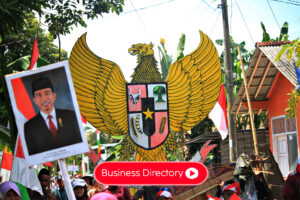Attention, economic stakeholders! Get ready to welcome a new chapter in Indonesia’s economic journey! Exciting news comes with the plan to establish three new Special Economic Zones (SEZs), marking a strategic government move to advance the national economy. These new SEZs are expected to attract foreign and local investment, create new jobs, and stimulate economic growth across various sectors.
In the dynamic era of globalization, Indonesia continues to improve its competitiveness and attract investments. The creation of new SEZs is a strategic step in this endeavor. These zones are seen as gateways to new opportunities, set to unlock various prospects for national economic progress.
The Indonesian government has long recognized the substantial potential in establishing SEZs as a primary strategy to attract investments, generate employment, and accelerate regional economic development.
What Are Indonesia’s Special Economic Zones (SEZs)?
Special Economic Zones are designated areas within Indonesia’s jurisdiction, established to facilitate economic functions and receive certain benefits. These zones are designed to promote industrial, trade, and service activities by offering special incentives to investors, such as tax exemptions, simplified licensing, and adequate infrastructure.
SEZs are developed by preparing areas with geo-economic and geo-strategic advantages to host industrial, export, import, and other high-value economic activities with international competitiveness. An SEZ may consist of one or several zones, including export processing, logistics, industry, technology development, tourism, energy, and other economic activities.
Within SEZs, supporting facilities and housing for workers can be developed. Each SEZ also provides space for micro, small, medium enterprises (MSMEs), and cooperatives, both as business actors and as support for companies operating within the SEZ.
Introducing Indonesia’s Three New Special Economic Zones (SEZs)
The government, through the National Council for Special Economic Zones, has decided to approve the proposals for the establishment of the International Health Tourism SEZ in Batam, SEZ in Tangerang Regency, and SEZ in Morowali Regency during the National Council Meeting held at the Coordinating Ministry for Economic Affairs in Jakarta on Wednesday (May 29).
These proposals will be recommended to the President for formal establishment through a Government Regulation (PP). With the approval of these three new SEZs, the National SEZ Council targets a total investment of up to IDR 161 trillion.
“SEZs have been approved, two health SEZs and one nickel development SEZ,” said Coordinating Minister for Economic Affairs Airlangga Hartarto at the Coordinating Ministry for Economic Affairs office in Jakarta on Wednesday (May 29, 2024).
Discussing the newly approved SEZs, the SEZ in Tangerang Regency, Banten Province, covers an area of 59.68 hectares with a target investment realization of IDR 18.8 trillion and will employ 13,446 people. This SEZ, located in the Bumi Serpong Damai (BSD) area, focuses on international education and health services with digital technology development. Business activities in this SEZ include education, with the operation of Monash University (PLTN) as the 42nd best university in the world, research, digital economy, and technology development with a target of 100 startups, integrated health services, and creative industries.
Meanwhile, the International Health Tourism SEZ in Batam has a committed investment of IDR 6.91 trillion and will create 105,406 jobs. Apollo Hospital India, as the main investor, is committed to constructing facilities for international standard health services and enhancing medical tourism, set to be completed and operational by 2026. The establishment of this SEZ is expected to save Indonesia IDR 500 billion in foreign exchange.
The SEZ in Morowali Regency, Central Sulawesi, focuses on nickel downstreaming based on green industry. This SEZ has a target investment of IDR 135.38 trillion upon full operation, with employment for around 136,000 people. This SEZ engages in nickel production and processing, utilizing advantages such as Gas Steam Power Plants (PTLGU), Fully Enclosed Submerged Electric Furnace technology, recycling tailing waste through High Pressure Acid Leaching (HPAL) process, downstreaming Nickel Matte and Mixed Hydroxide Precipitate (MHP) to create electric vehicle battery precursors, and securing water supply through dam construction.
Airlangga also confirmed that the development of these three SEZs does not use the State Budget (APBN). All financing is purely from the private sector.
The three new SEZs are deemed to have met the requirements for SEZ formation as stipulated in Government Regulation No. 40 of 2021 on the Implementation of Special Economic Zones and are expected to enhance Indonesia’s competitiveness, boost regional economies, and create new jobs, in line with the various facilities and conveniences provided.
The government is also striving for policy transformation in SEZ development, emphasizing the creation of SEZs that can build value through technology mastery and human resources. The development of SEZs in the service sector is expected to retain foreign exchange outflows and increase national foreign exchange earnings.
With the addition of these three new SEZs, Indonesia is preparing for a new era in economic development. This move is expected to promote more inclusive growth, create jobs, and enhance national competitiveness. For investors, these SEZs represent golden opportunities to invest in sectors with significant potential. Let’s support this initiative together to realize a more advanced and prosperous Indonesia.



 20% off today. Whatsapp us!
20% off today. Whatsapp us!